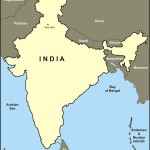Surprising as it may seem in a country ruled by an iron fist, the situation in some areas of Yunnan is not very different from that in India’s Northeast or some of Myanmar’s in so far as law and order is concerned. Describing the state of affairs in the province in 1995, a leading Asian magazine said, “Last year seizures of illegal arms were up nearly 30% over 1993. That reflected both increasing availability of guns and rising official alarm. In September, a month long crackdown netted some 120,000 illegal weapons. And while military handguns are the hottest item, gun-running syndicates are also marketing grenades and sub-machine guns. In May (1995), Guangdong police seized anti-tank rocket launchers.” It goes on to explain how firearms once sold to Vietnamese and Burmese communists by Beijing were finding their way back to Yunnan and landing in the hands of organised crime syndicates.16
Like the Wa troops, many Northeast militant groups have also taken to gunrunning and protection of the drug trade albeit on a lesser scale.
The task of these crime syndicates has been rendered easier by the existing conditions in Bangladesh and Myanmar that facilitated a military-militant-mafia nexus and easy availability of porters and agents due to unemployment and poverty. In Bangladesh though, Pakistan’s ISI was an important factor and its role has been reconfirmed from the new investigation into the Chittagong Arms Haul of 2 April 2004. Two senior officials from National Security Intelligence (Bangladesh’s equivalent of Intelligence Bureau) have also been arrested, and the interrogation of a local gunrunner Hafizur Rehman has revealed that ULFA’s Paresh Barua and the intelligence chief of National Socialist Council of Nagaland-Isak Muivah (NSCN-IM) Anthony Shimray were present when the consignment came in from the Sittwe Port in Myanmar by sea. This consignment too was sourced from Yunnan, and many Northeast outfits and the CPI-M had a stake in it.
In Myanmar, the lure of easy money has drawn a section of Myanmar army officials into drug trafficking and other illicit trades.17 At least 2 of the 20-odd insurgent outfits—Kachin Independence Army (KIA) and UWSA—that arrived at ceasefire agreements with the Myanmar Junta have forged links with Yunnan and the mafia to get a share in the arms trade. Incidentally, all these insurgent groups have been allowed by the government to carry on all kinds of activities in their respective territories. A ban on opium cultivation has been imposed in Kokang and Wa regions in Myanmar, but that has had the unintended consequence of enhancing poverty and forcing people into gunrunning and production of synthetic drugs as a means of alternate livelihood.
| Editor’s Pick |
UWSA deserves a special mention as it is both the largest ethnic and narco-ethnic army in the region, with a cadre strength of more than 20,000 troops.18 Wa soldiers formed the bulk of the Communist Party of Burma (CPB) till they revolted and decided to float the present organisation in 1989. Today, it has monopolised the entire trade on amphetamine (a synthetic drug, ATS), and some of its leaders, like the Wei brothers, are among the biggest drug barons in Myanmar. The U.S. has indicted as many as eight senior Wa leaders on drug-trafficking charges, including Bao You Chang, chairman of United Wa State Party, the political front of UWSA.
Since extortion from businessmen and government officials does not amount to much in the hill states, extra income from other sources is needed to pay allowances and salaries to cadres.
UWSA cadres have been spotted at Tamu across Moreh in Manipur, and there has since been an increasing inflow of “yaba” (ATS variant) into Manipur. They have firmed up deals with Naga and Kuki rebels and are also the main suppliers of weapons in a huge stretch along the Chandel-Churchanpur belt.19 Chinese officials have welcomed Wa investment in Yunnan; the Golden Phoenix Hotel in Simao is proudly described in a brochure as a joint venture between “the Wa Federation of Myanmar [Burma]” and Yunnan’s Provincial Farming Bureau.20
Like the Wa troops, many Northeast militant groups have also taken to gunrunning and protection of the drug trade albeit on a lesser scale. Both the Isak-Muivah and Khaplang factions of NSCN, United National Liberation Front (UNLF), PLA, Prepak, Kanglei Yawol Kanna Lup (KYKL), Zomi Revolutionary Organisation (ZRA) and Kuki National Army (KNA) are among some groups that are involved, and they tax all drugs and arms consignments passing through their areas.
Since extortion from businessmen and government officials does not amount to much in the hill states, extra income from other sources is needed to pay allowances and salaries to cadres. Interestingly, the annual expenses of many outfits have gone up after they signed ceasefire agreements with the centre.21 Most of these groups have recruited more cadres after coming over ground in violation of the ceasefire ground rules, and unemployed young adults and children are always easily available in the region due to rampant unemployment, socioeconomic deprivation and a host of other factors.
Continued…: Small Arms Proliferation in the Northeast: The Chinese Connection – II




